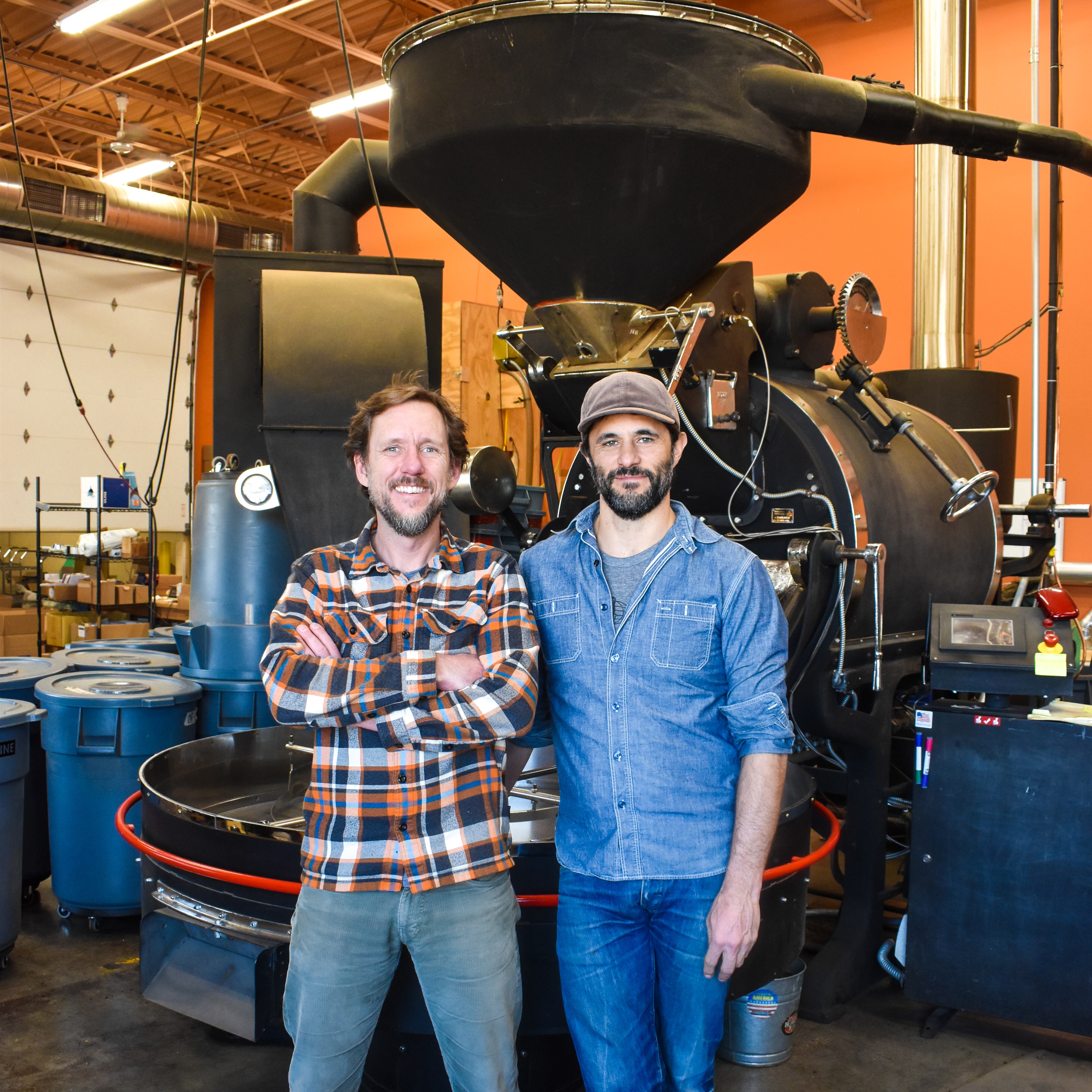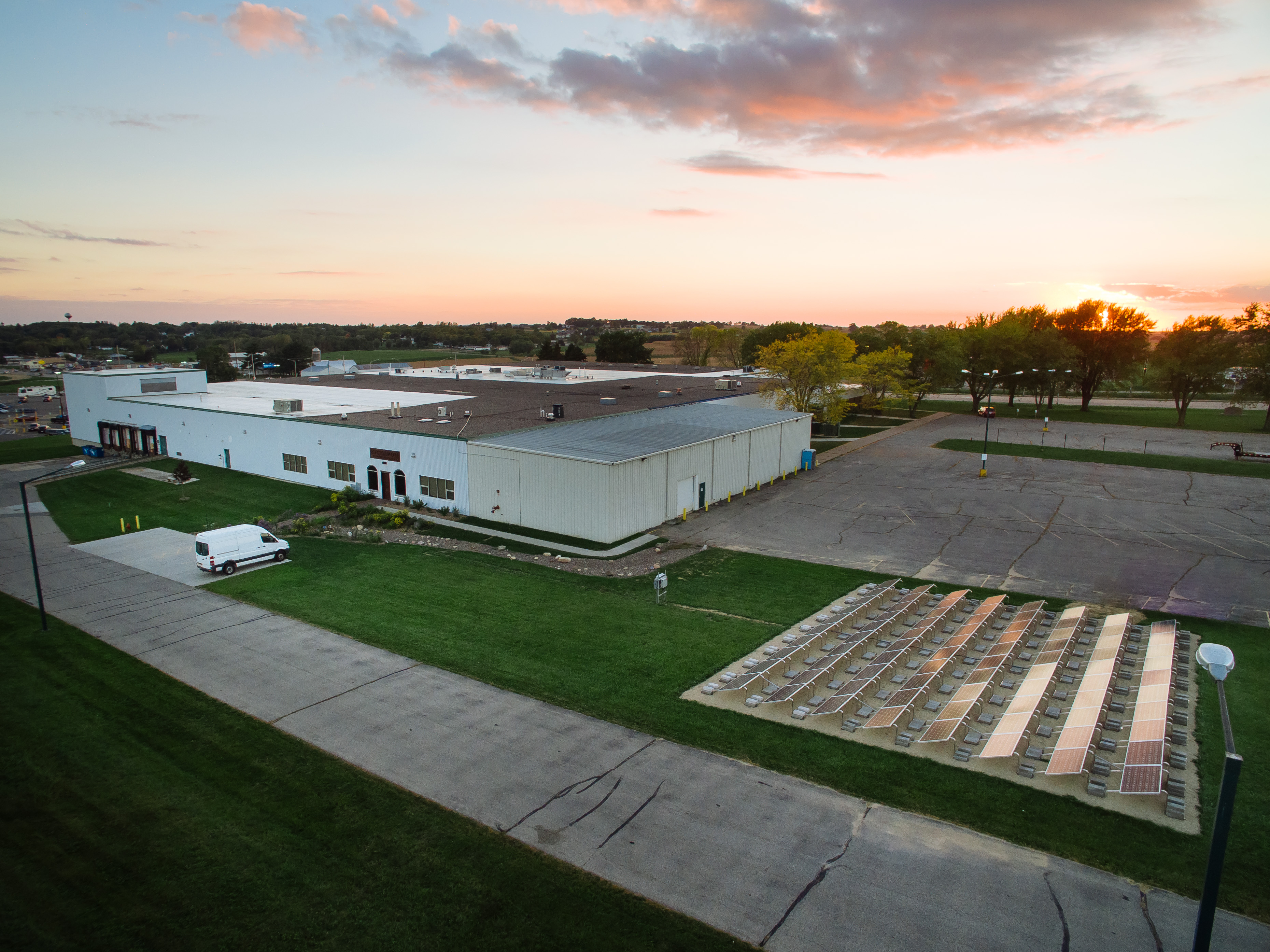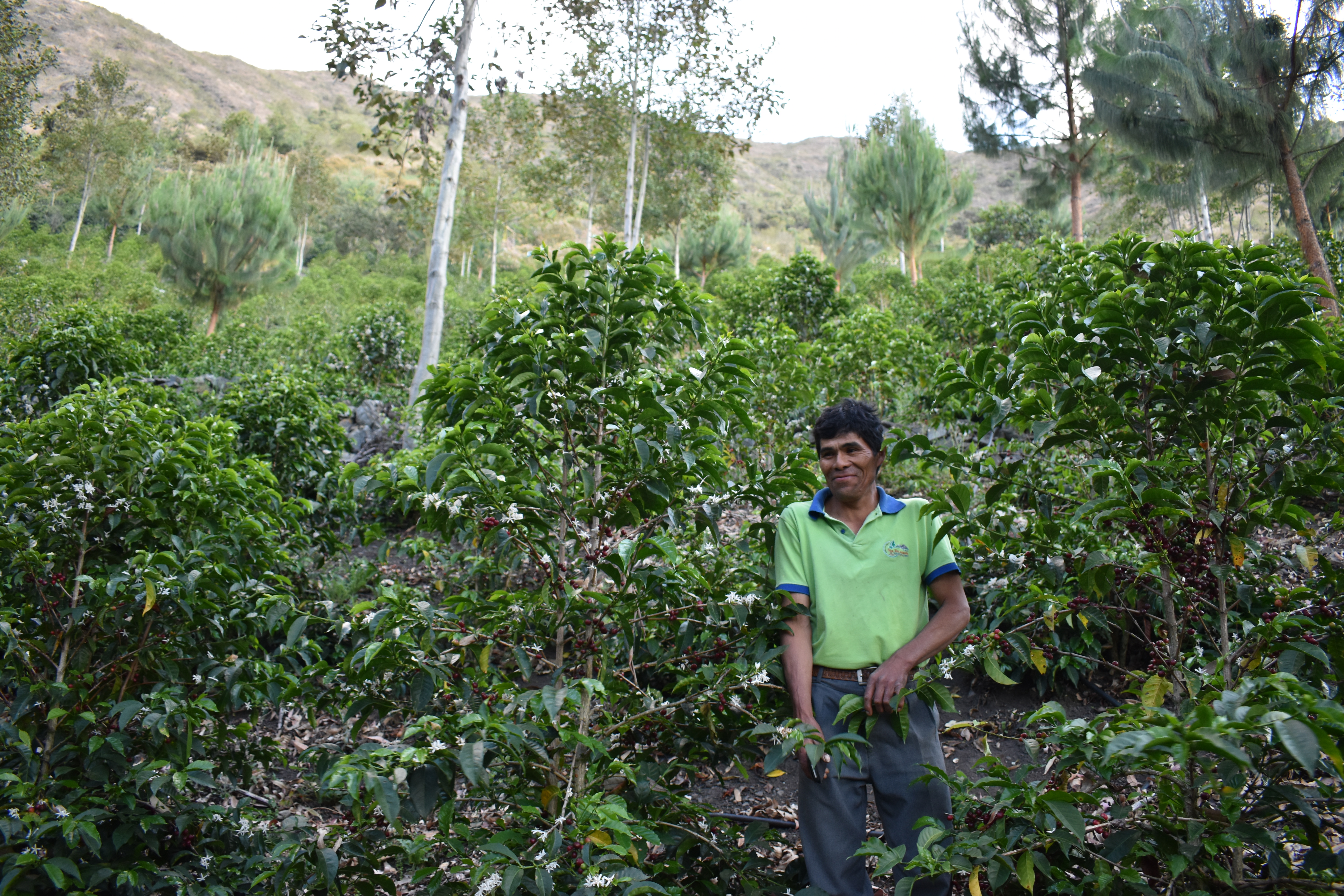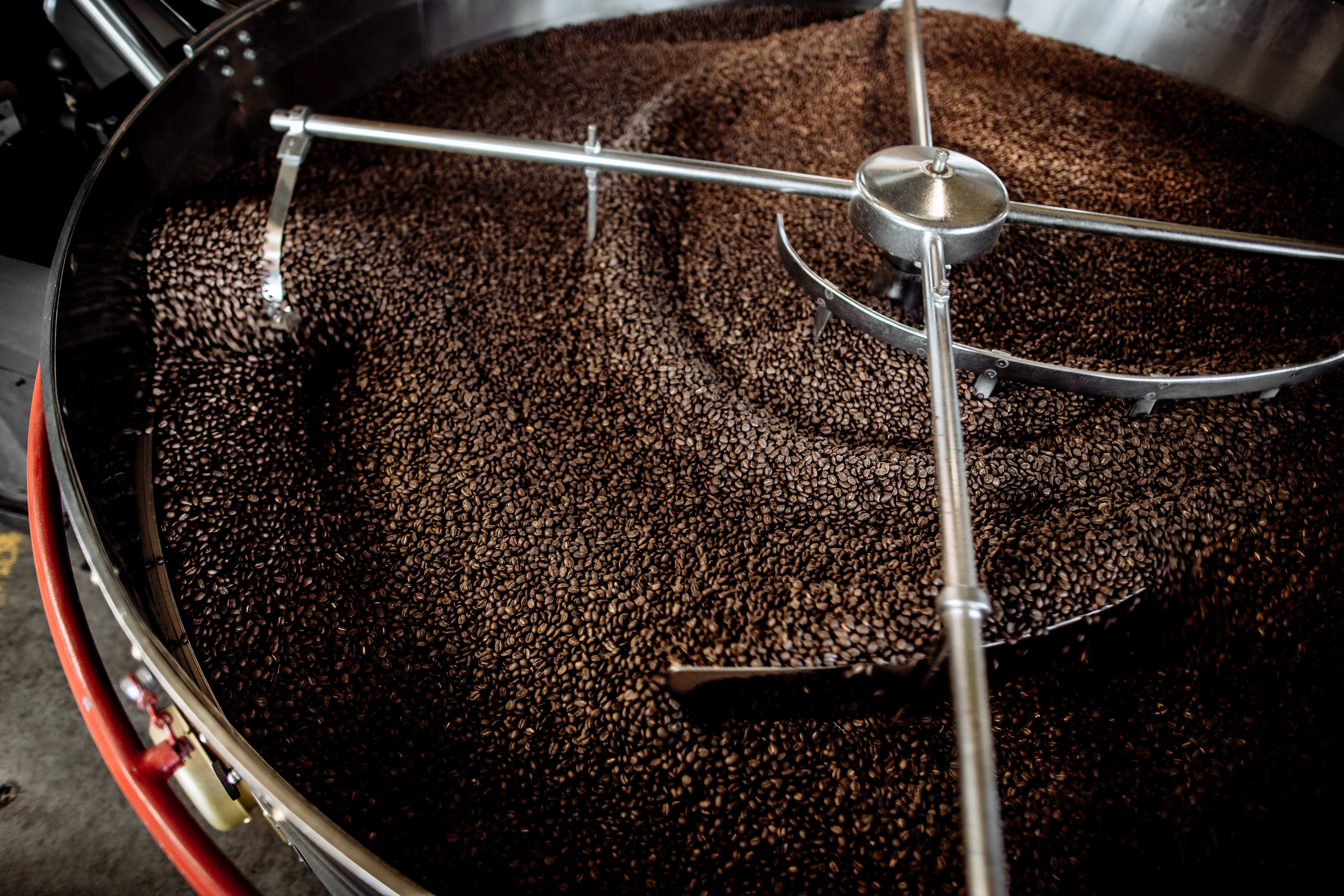Wonderstate Coffee: Breaking Boundaries
*Some quotes have been shortened for clarity and length.
The sweet aroma of fresh coffee awakens your senses as you open the door and you’re greeted by the face of a friendly barista. You smile and look up to scan the menu, admiring the inviting and minimalistic décor, tastefully accented with calming blues. Your order is simple, a small drip coffee. As the coffee meets your lips, you take a moment to appreciate the sweet, floral aroma, and you stop to savor the taste of the sweet elixir that is good coffee.
It’s easy to enjoy the simple pleasure of your favorite coffee without giving much thought to the vast journey it made before ending up in your cup. In the distant regions of the world, far from the modern cafe you frequent, are people working tirelessly to make your cup of coffee a reality. But, there is a roastery out of Wisconsin, founded by Denise & TJ Semanchin and Caleb Nicholes, whose identity and mission are powered by a desire to support coffee farmers in overcoming the longstanding inequities carried over from colonialism.
 Photo by Wonderstate Coffee
Photo by Wonderstate Coffee
Wonderstate Coffee has taken extraordinary steps to lessen their carbon footprint, fostering long-term partnerships with growers, paying one of the highest minimum prices in the industry, and giving back to communities, both locally and in coffee-growing regions. Their emphasis remains on supporting farmers and the troubling conditions they continue to face.
“It was this combination of pursuing extraordinary coffee with earnest intentions that sparked Wonderstate’s mission and guided what it has become today,” President and Owner, TJ Semanchin said.
One of Wonderstate’s monumental efforts in addressing and combatting their carbon footprint has been to harness solar energy for their roastery in Viroqua, Wisconsin. As of 2015, Wonderstate became one of the first coffee roasters in the world to generate power through their on-site solar array that powers their heating, cooling, vacuum systems, lights, and more, while the roasters remain powered by natural gas.
“We owe it to them to reduce our impact in the global north.”
“We have been tracking our carbon footprint for the past 5 years, and solar is now one of many initiatives we are engaged with to reduce the amount of carbon our activities as a business are producing,” he said. “We have noticed how severely climate change is impacting our producer partners who already bear the brunt of the risk in our industry. We owe it to them to reduce our impact in the global north.”
 Photo by Wonderstate Coffee
Photo by Wonderstate Coffee
Wonderstate has fostered lasting relationships with growers and exporters across the globe. They believe that close, direct relationships make a greater impact on the supply chain. One such relationship is that of the Fondo Paez Cooperative in Colombia. Semanchin visited the Paez people that make up the cooperative in Cauca, a region of Colombia immersed in a long-standing civil war, at great risk, but because the coffee sample he tried was so outstanding, he felt it was worth it. As the first international visitor to the cooperative, their first meeting was “intense and emotionally charged.”
“After a generation of instability, a direct connection to an international buyer meant the producers of Fondo Paez had an opportunity to control the destiny of the coffee they worked so hard to produce,” he said. “Nearly two decades later, Wonderstate continues to benefit from our relationship with the Fondo Paez Cooperative. For us, it means a consistent and dependable supply of exceptional coffee.”
Coffee farming can be a laborious profession that is often left at the mercy of mother nature and buyers. Ensuring the individuals working to grow and process coffee are fairly compensated for their work is one of the driving forces behind Wonderstate Coffee, and remains one of the greatest disparities in the market.
 Photo by Wonderstate Coffee
Photo by Wonderstate Coffee
“One of the ways the market has failed farmers is that over the last 40 years, the average C-market price has essentially remained static,” he said. “The average cost for a pound of green coffee in the 1970s, for instance, was around $1.40 FOB (Free on Board: the price paid to farmer co-ops or in-country exporters, a common standard for approximating the final price to farmers). As of April 2023, the price sits at a dismal $1.76.”
In an effort to combat these unfair practices, Wonderstate has been paying some of the highest published minimum prices in the industry, as well as only working with exporters and cooperatives that honor fair farmer compensation and transparency.
“Though this is currently one of the highest published minimum prices in the industry, it is not a revolutionary move, especially given the historical context”
“In 2021 we reestablished our commitment to farmers by increasing our minimum price guarantee to $2.95/lb for FOB coffee,” he said. “Though this is currently one of the highest published minimum prices in the industry, it is not a revolutionary move, especially given the historical context. But, it's a step in the right direction, and we are committed to taking further steps after this one.”
 Photo by Wonderstate Coffee
Photo by Wonderstate Coffee
Beyond ensuring that the people and farmers that make the delicious coffee they roast and brew are compensated fairly, Wonderstate donates 5% of their profits every year to organizations and initiatives, both locally and in coffee-growing regions, that help improve the quality of life for its residents. These include organizations like On the Ground - Project Congo which supports gender equity in Congo, as well as many local efforts such as the Valley Stewardship Network to protect the region of Wisconsin where their roastery resides, in addition to dozens more.
“We believe in sharing our success and using our resources to have a positive impact on the world,” he said. “We partner with organizations that are focused on improving lives and the natural world both where our coffee is grown and where it is enjoyed here at home.”
Propelled by a purpose to undo the oppression evident in coffee-growing regions, populated by hardworking people that directly feel the impact of today’s practices, Wonderstate continues to not only roast incredible coffees, but set new standards across the industry in terms of farmer compensation, battling climate crisis, bettering the community, both near and far, and never settling.
“We can do better, and we need to. Our hope is that others will join us in taking the next steps to create a more equitable and sustainable coffee supply chain,” he said.



